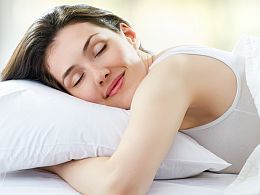Tips To Improve Your Sleep
Sleep is the body’s recovery period, when the body heals and relaxes. Today’s stressful lifestyle can cause sleep problems, and in the longer term it can result in health problems. Depression, poor immune function, obesity, increased risk of diabetes, high blood pressure, and decreased sex drive, are examples of health conditions that can be related to poor sleep.
 How much sleep do we need?
How much sleep do we need?
According to experts, we need about 7-9 hours of sleep per night. Most people sleep about 7,5 hours per night, but some people only need to sleep for 5 hours while others need to sleep for at least 9 hours. Women often need a little more sleep than men. Also, as we get older we tend to need less sleep.
Studies show that women sleep worse than men, and tend to experience more symptoms of insomnia. Worse off are the long term unemployed women and women who have taken early retirement. About 50% of these women have experienced some form of sleep disorder.
Men at the age between 45 and 54 are those who tend to sleep the best.
Do you have sleep problems?
You have sleep problems if you:
- you have trouble falling asleep at night
- you wake up more than three times a night and have trouble getting back to sleep again
- you wake up an hour earlier in the morning
- you are not refreshed when you wake up and are tired during the day
Tips on how to improve your sleep
There are different things you can do if you have trouble sleeping at night. Here are some effective tips to improve your sleep naturally:
- Exercise – 30 minutes a day is enough. Remember not to exercise too late in the evening, because this can disrupt your sleep habits.
- Avoid caffeine & quit smoking – Don’t drink anything that contains caffeine such as coffee, black tea and Coca Cola, especially in the evening. Smoking can also result in sleep problems.
- Don’t eat too late – Avoid fatty and spicy foods at night. Your last meal should be 2-3 hours before getting to bed, and try to eat healthy.
- Drink alcohol moderately – Alcohol impairs sleep quality by interfering with your deep sleep. Also, you have to get up and pee at night because of the diuretic effect.
- Review your bedroom – Your bedroom should be quiet, dark and cool. Ear plugs and sleep mask can be helpful. Avoid ceiling lights 2 hours before going to sleep and lit a few candles instead.
Avoid long naps – Brief nap (15 and 20 minutes) at midday may is good, but do not sleep too long, and not too close to bedtime. - Establish a good sleep routine – Go to sleep at the same time every night and wake up the same time every morning. Good sleep routine is a way for your body to learn when it’s time to sleep.
- Relax – Take the time to relax before you go to bed. Take a hot bath, read a book, listen to soft music, or do some yoga before bedtime for a better sleep.
- Review your bed – Your mattress should be moderately hard to avoid back and neck problems. If you share your bed with a partner, try out a mattress for you and one for your partner.
- Increase Serotonin for better sleep – Altered levels of serotonin can interrupt your sleep. Foods rich in tryptophan can help balancing your serotonin level. Milk, banana, turkey, chicken, fish, cottage cheese, nuts, eggs, beans, dark chocolate, and healthy fats such as omega-3 fatty acids all contain high levels of tryptophan. Avoid stimulants such sugar, caffeine, energy drinks, and alcohol since they all suppress serotonin. Also, exercise, relax, and get enough sunlight to boost your serotonin level.
- Cognitive Behavioral Therapy – CBT has helped many people to overcome their sleep problems. You will meet a specially trained therapist about 8-10 times, and learn the importance of regular routines and various relaxation techniques. You will also keep a sleep diary. Talk to your employer and contact your doctor for more information on CBT and how you can improve your sleep.
What about sleeping pills and natural herbs?
If none of the above tips to improve sleep helps, sleeping pills may be a solution. There are both prescription sleeping pills, and natural sleeping pills. Talk to your doctor and see what’s the best solution for you. Below are examples of natural herbs and oils that can help improving your sleep.
- Chamomile – Tea made on chamomile flowers have sedative and antispasmodic properties and can help you sleep better.
- St. John’s Wort – Can help with mild anxiety and insomnia. Not to be combined with other drugs. Talk to your doctor before using St. John’s Wort.
- Lemon balm – The essential oil of lemon balm has a calming effect and makes it easier to fall asleep.
- Passion Flower – Anxiolytic, muscle relaxant and pain reliever. Passion flower is considered effective against insomnia when it is combined with other herbs such as hops and chamomile.
- Valerian – The root is dried and used. It has a long-known sleep-inducing effect and can improve sleep quality.
- Hops – The bitter substances humulone and lupulone that are found in hops, have a sedative and hypnotic effect. In the past, people used to place hop cones in the pillow to sleep better.
- Lavender – lavender and lavender oil have a mild sedative effect in migraine, nervousness and anxiety, and may aid in insomnia, leading to better sleep.
- Dill – The dried dill seeds are antispasmodic and soothing. Try a cup of dill seed tea!
-
Advertisement

 Facebook
Facebook  Twitter
Twitter  RSS
RSS







